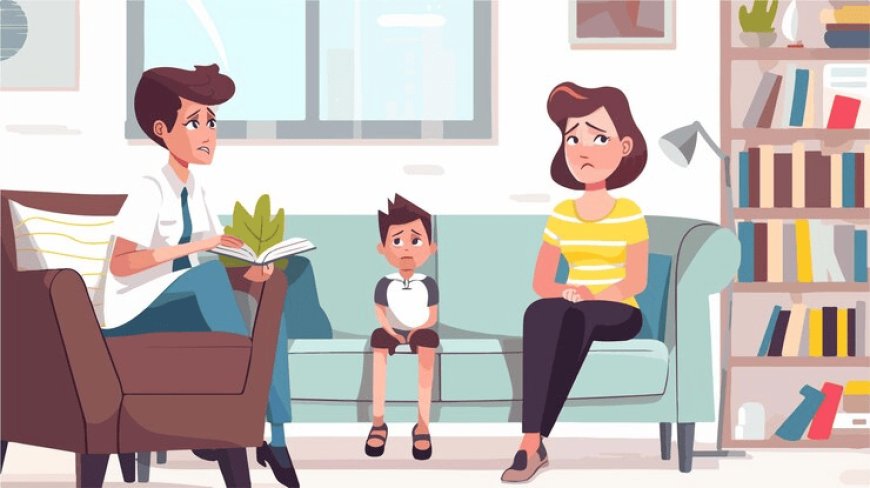Challenges Toddlers Face and the Benefits of ADHD Therapy
Discover common challenges toddlers with ADHD face and how early ADHD therapy can support their development and behavior

Attention Deficit Hyperactivity Disorder (ADHD) is most often linked to school-age children, but symptoms actually start to develop much earlier — even in toddlers. For parents and caregivers, it is essential to know the early struggles of toddlers with ADHD in order to extend support in a timely fashion. Early treatment through ADHD therapy and proper ADHD treatment can really impact a child's life, assisting them in developing skills that will last a lifetime.
Recognizing ADHD Challenges in Toddlers
Toddlers naturally have short attention spans and high energy levels, making it tricky to distinguish typical toddler behavior from early signs of ADHD. Nonetheless, certain actions could cause issues, like:
- Extreme hyperactivity: Constantly moving, climbing, or inability to stay still even for brief periods.
- Impulsivity: Impulsive behaviour, having trouble waiting their turn, or throwing tantrums frequently.
- Inattention: Difficulty focusing on simple tasks or following age-appropriate directions.
- Difficulty in self-regulation: Difficulty with soothing after becoming upset or with shifting from one activity to another.
These issues may impede a toddler's functioning with family, caregivers, and peers, making daily routines more difficult and stressing both child and family.
The Impact of Untreated ADHD Challenges in Toddlers
If treatment is not received, toddlers with ADHD may continue to struggle with the following issues:
- Struggles with language development and communication.
- Struggling to develop social relationships with peers.
- Heightened frustration and behavioral issues that progress over time.
- Struggles in early education settings such as preschool, which can contribute to low self-esteem.
Early diagnosis and treatment are needed to avert these challenges from snowballing.
What Is ADHD Therapy for Toddlers?
Treatment of ADHD in toddlers is centered on developing and behavioral intervention based on their young age. As opposed to adults or older children, toddlers generally do not be treated with medications as initial treatment for ADHD. Therapy is centered on assisting toddlers in acquiring basic skills through:
- Behavioural therapy: Techniques such as positive reinforcement are used to promote good behaviors and discourage problematic ones. Parents are usually trained on ways to control tantrums, enhance routines, and promote improved attention.
- Parent training: Educating caregivers with skills to comprehend their child's demands, set precise expectations, and be consistent is central to the therapy. It establishes an organized supportive environment minimizing stress for the entire family.
- Occupational therapy: Many toddlers with ADHD also struggle with sensory processing issues. Occupational therapists can help children regulate sensory input, improve motor skills, and develop self-soothing techniques.
- Speech and language therapy: When ADHD symptoms are accompanied by communication difficulties, speech therapy can help with both expressive and receptive language abilities.
These approaches work together to support the toddler’s overall development and set the stage for successful learning and social experiences later on.
Advantages of Early Treatment of ADHD
Early treatment of ADHD has numerous benefits:
- Better Behavior and Control of Emotions: ADHD treatment educates toddlers and their parents with strategies to control impulses and emotions. Toddlers are better able to cope with frustration and acquire coping mechanisms that avoid serious behavior disorders.
- Better Social Skills; Therapies also provide practice in turn-taking, sharing, and other social skills essential for interacting with others. This can improve confidence levels and minimize feelings of being alone.
- Improved Attention and Focus: Though toddlers automatically possess short attention spans, therapy can aid in improving attention span during play and planned activities. Such skills are a basis for preschool and later success.
- Improved Parent-Child Relationships: Parent training in ADHD therapy enhances empathy and understanding. As parents learn how to effectively respond to their child's needs, they establish a better home environment and more secure relationships.
- Decreased Family Stress: ADHD behaviors are challenging to manage without direction. Early intervention equips parents with support systems, tangible strategies, and a guide for coping with challenges, lessening total stress.
How to Help a Toddler with ADHD
In conjunction with professional counseling, families can help their toddlers in day-to-day life by:
- Having regular daily routines regarding meals, naps, and play. Toddlers feel safer and experience less anxiety when there is consistency.
- Encouraging exercise to burn off excess energy in healthy manners.
- Providing a relaxed atmosphere with few distractions during concentrated activities or quiet time.
- Focusing on small successes and milestones to construct self-esteem.
When to Seek ADHD Treatment for Toddlers
If you observe your toddler displaying chronic hyperactivity, impulsivity, and inattention that surpasses normal toddler behaviors, seek out a pediatrician or developmental expert. Early treatment with ADHD therapy is not about hurrying to a diagnosis but about offering the help your child needs to succeed. The sooner therapy starts, the sooner your child will be able to cope with difficulties and capitalize on strengths.
Conclusion
ADHD toddlers experience unique challenges that can affect their growth and family dynamics. But with initial ADHD therapy and careful ADHD treatment, these little ones can acquire valuable skills to move about their world with more ease and confidence.
Parents and caregivers have an important role to play in identifying symptoms, accessing early intervention, and establishing a supportive environment in which their toddlers can thrive. Through therapy, education, and understanding, families are able to establish a positive platform supporting lifelong development and achievement.

















































































